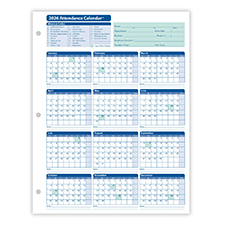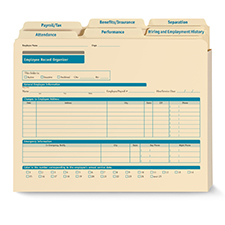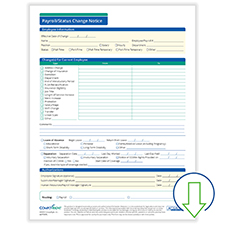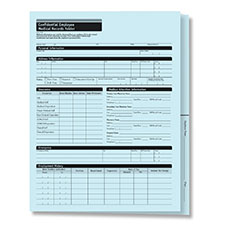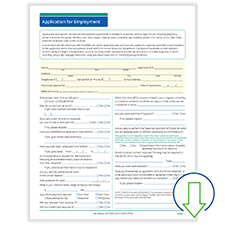
Workplace priorities and practices are changing — and employee manuals need to reflect those shifts. Up-to-date, attorney-approved company policies help put you on firm legal footing through these various changes and developments. Today, this might mean addressing gender and pay equality, remote/hybrid work arrangements, technology use, and drug and gun law issues. Let’s take a closer look at the workplace policies every conscientious business should cover.
Building a Foundation: Company Policies to Include
First, the basics. At a minimum, your written workplace policies should include certain fundamentals, such as:
- Employee attendance and paid time off (including accrual or payouts of unused time)
- Sick leave (including what your business will do if there’s a major outbreak or pandemic like the previous COVID-19 pandemic)
- Company holidays (paid or unpaid)
- Family and medical leave (if applicable)
- Regular and overtime pay
- Working hours and breaks
- Dress codes (if applicable)
- Rules of conduct (such as taking personal calls or using cell phones)
Specify the consequences for policy infractions and how to request time off or apply for benefits.
Other Policy Issues to Address
In addition to covering the basics, you’ll want to develop 10 additional policies in these key areas:
- Remote and Hybrid Workers Policy
As remote and/or hybrid work becomes more common, even after the pandemic, be sure you have a policy that outlines who is eligible for these alternate work arrangements and what is expected. It should cover a few key areas, such as proper use of company or personal equipment, time and attendance tracking, and data security and confidentiality. A sound policy will avoid discrimination and will enable you to end the remote work arrangement, if necessary.
- BYOD (Bring Your Own Device) Policy
In today’s workplace, many employees use their own cell phones, tablets and laptops both on and off the job. While allowing employees to bring their own devices can reduce costs, it also creates potential security and legal compliance concerns. Protect your company with a well-written policy that outlines the boundaries or security features you require, as well as procedures when employment ends.
- Social Media Policy
Protect your company’s reputation and legal status by creating a social media policy that empowers your employees to share messages in a positive way while avoiding potential problems. For example, outline what is permitted (such as sharing new product photos or images from a company event) as well as what is not (such as pre-launch details, internal strategies or controversial political comments). Establish when social media for personal use is allowed, what information is considered confidential, the brand guidelines for discussing company products or services, and rules of etiquette.
- Confidentiality Policy
A company confidentiality policy helps protect customer data, trade secrets, procedures and information about new products or services. Confidentiality policies might cover personal or proprietary data, prototypes, software, drawings, systems, methods, internal and external communications, and test results. In sensitive industries, you may need to ask employees to sign a confidentiality, non-disclosure or non-compete agreement.
- Drug and Alcohol Policy
With new laws in many states that legalize marijuana for medicinal or recreational use, your drug use policies may need updating. A drug-free workplace policy should strictly prohibit the sale, possession and use of illegal drugs or alcohol when an employee is on the job. It should specify the types of forbidden substances and conduct as well as the consequences for violating the policy. If you have any drug-testing procedures in place, such as random testing, for-cause testing or post-accident testing, be sure you define them clearly.
- Weapons/Workplace Violence Policy
Even in states where concealed-carry weapons are legal, employers can prohibit employees from carrying weapons into the workplace premises or making threats against other employees. In fact, under OSHA and various state laws, you are obligated to protect employees from workplace violence. Be specific in your policy and define what actions are restricted — from verbal threats to shoving — as well as the types of weapons not allowed on work premises, such as knives, guns or other firearms. Keep in mind that, in many states, firearms are allowed in locked vehicles in the parking lot, regardless of workplace restrictions.
- Anti-Discrimination/Anti-Harassment Policy
Today, workplace protections against harassment and discrimination go beyond race, color or national origin, and may include sexual orientation, gender identity or age as well. Make sure your employees know that discrimination is illegal when you’re hiring, providing job assignments or offering promotions. Clearly define the types of actions that are considered discrimination or harassment (including sexual harassment) and what your policies for infractions are. Include specific provisions for how to report behavior that violates your policies and a statement that ensures reporting such behavior is protected.
- Workplace Accommodations for Disabilities
The Americans with Disabilities Act (ADA) requires companies with 15 or more employees to provide certain accommodations for workers with disabilities to allow them to perform their jobs. Make sure your company policy defines disabilities and states your intent to comply with all applicable laws under the ADA. Spell out how requests for accommodations should be made, including what information you require (such as any medical records) and to whom requests should be submitted.
- Pay Transparency Policy
More states are requiring employers to share pay ranges externally (advertised job postings) and/or internally (promotions, transfers and upon request). A pay transparency policy should establish guidelines regarding the disclosure of employee compensation information, along with stating the company’s commitment to equal pay for equal work, which includes regular review of compensation practices to ensure fairness.
- Family and Paid Leave Policy
A family and paid leave policy doesn’t just consist of what you offer your staff — it must also comply with federal and state regulations. When creating your family and paid leave policy, it’s important to outline the process for requesting and taking time off for family-related and personal reasons, which may include maternity leave, paternity leave, adoption leave, parental leave, family care leave and bereavement leave.
Regularly updating and communicating company policies helps establish
clear boundaries, prevent misunderstandings and provide critical legal protections.
Easily Develop and Distribute Company Policies
Staying on top of workplace policies is easy when you choose the right solution. HRdirect offers two options backed by our legal and HR experts: the State-Specific HR Policies Library or the Company Policies Smart App. Both solutions allow you to create and edit policies as necessary to develop a custom handbook that meets your company's needs.





 Shopping cart
Shopping cart